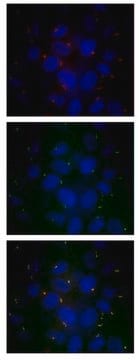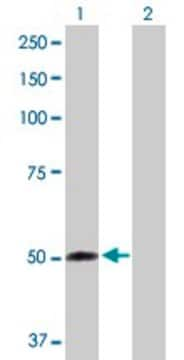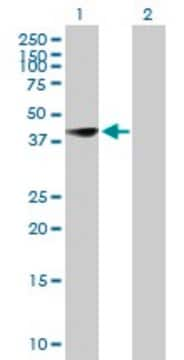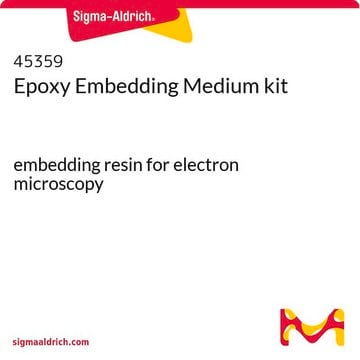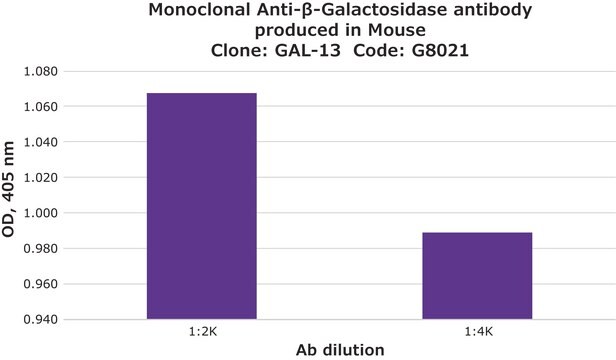ABS1035
Anti-FMO2 Antibody
serum, from rabbit
Sinônimo(s):
Dimethylaniline monooxygenase [N-oxide-forming] 2, Dimethylaniline oxidase 2, FMO 1B1, Pulmonary flavin-containing monooxygenase 2, FMO 2
About This Item
Produtos recomendados
fonte biológica
rabbit
Nível de qualidade
forma do anticorpo
serum
tipo de produto de anticorpo
primary antibodies
clone
polyclonal
reatividade de espécies
mouse, human
reatividade da espécie (prevista por homologia)
chimpanzee (based on 100% sequence homology), orangutan (based on 100% sequence homology)
técnica(s)
immunohistochemistry: suitable
western blot: suitable
nº de adesão NCBI
nº de adesão UniProt
Condições de expedição
dry ice
modificação pós-traducional do alvo
unmodified
Informações sobre genes
human ... FMO2(2327)
Descrição geral
Imunogênio
Aplicação
Signaling
Toxicology & Drug Resistance
Qualidade
Western Blotting Analysis: A 1:500 dilution of this antibody detected FMO2 in 10 µg of human liver microsomal lysate.
Descrição-alvo
forma física
Armazenamento e estabilidade
Handling Recommendations: Upon receipt and prior to removing the cap, centrifuge the vial and gently mix the solution. Aliquot into microcentrifuge tubes and store at -20°C. Avoid repeated freeze/thaw cycles, which may damage IgG and affect product performance.
Outras notas
Exoneração de responsabilidade
Não está encontrando o produto certo?
Experimente o nosso Ferramenta de seleção de produtos.
Código de classe de armazenamento
12 - Non Combustible Liquids
Classe de risco de água (WGK)
WGK 1
Ponto de fulgor (°F)
Not applicable
Ponto de fulgor (°C)
Not applicable
Certificados de análise (COA)
Busque Certificados de análise (COA) digitando o Número do Lote do produto. Os números de lote e remessa podem ser encontrados no rótulo de um produto após a palavra “Lot” ou “Batch”.
Já possui este produto?
Encontre a documentação dos produtos que você adquiriu recentemente na biblioteca de documentos.
Nossa equipe de cientistas tem experiência em todas as áreas de pesquisa, incluindo Life Sciences, ciência de materiais, síntese química, cromatografia, química analítica e muitas outras.
Entre em contato com a assistência técnica